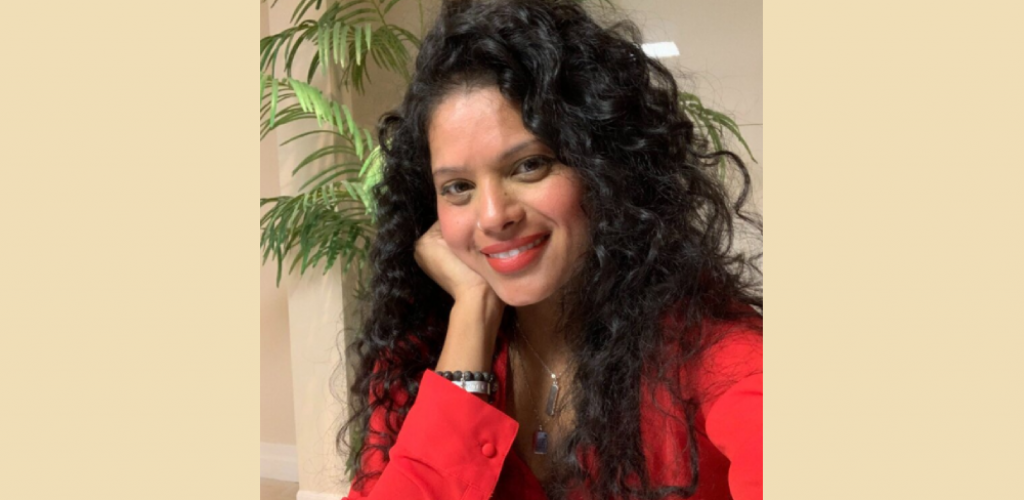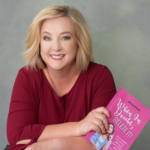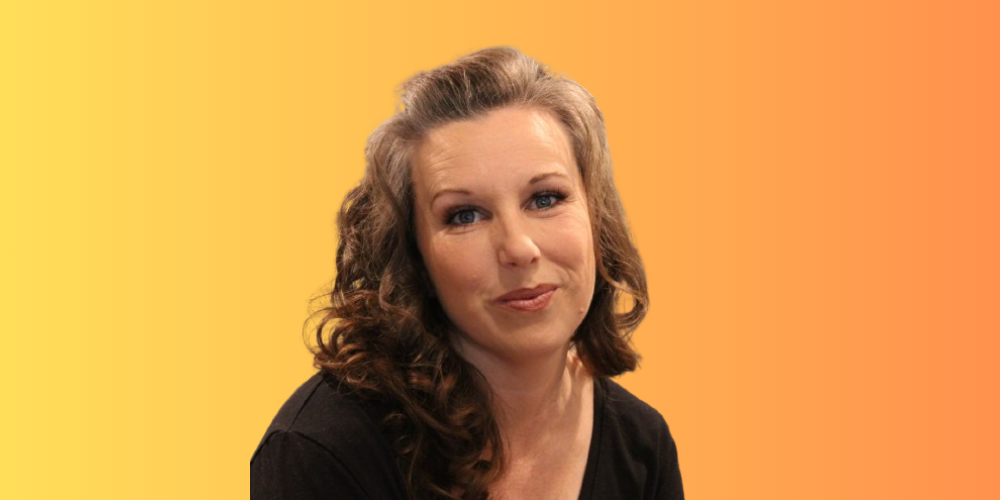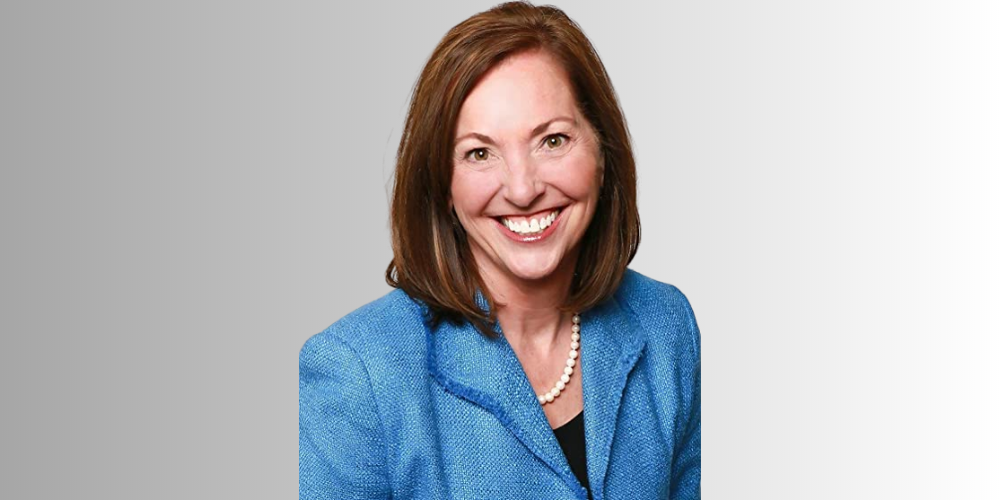Raj Girn: Here it is, folks. If you’re one of those people who are looking to go on real tips and insights to move past your current narrative, that is preventing you from cultivating an optimal work-life balance mindset, then this two-part series is for you. Additionally, if you’re looking to operate from your own trajectory to accomplish this by moving everything that doesn’t serve you out of the way, as well as all of the lotions and potions and mantras that come at you from outside of your comfort zone, that push and pull you in all kinds of directions that doesn’t really serve your peace of mind. Then I’m thrilled to bring you a breath of fresh air perspective with this week’s conversation with the fabulous founder of Pure Minds, Nina Purewal.
Before we say hello to Nina, let me set a bit of context for you. Pure Minds is a social enterprise focused on wellness, which was developed after a personal revelation that Nina had that led her to leave the corporate rat race in search of an alternative way to lead her life. She is also the international bestselling co-author of ‘Let That Shit Go, Find Peace of Mind and Happiness in Your Everyday.’
Here is Part One of our conversation:
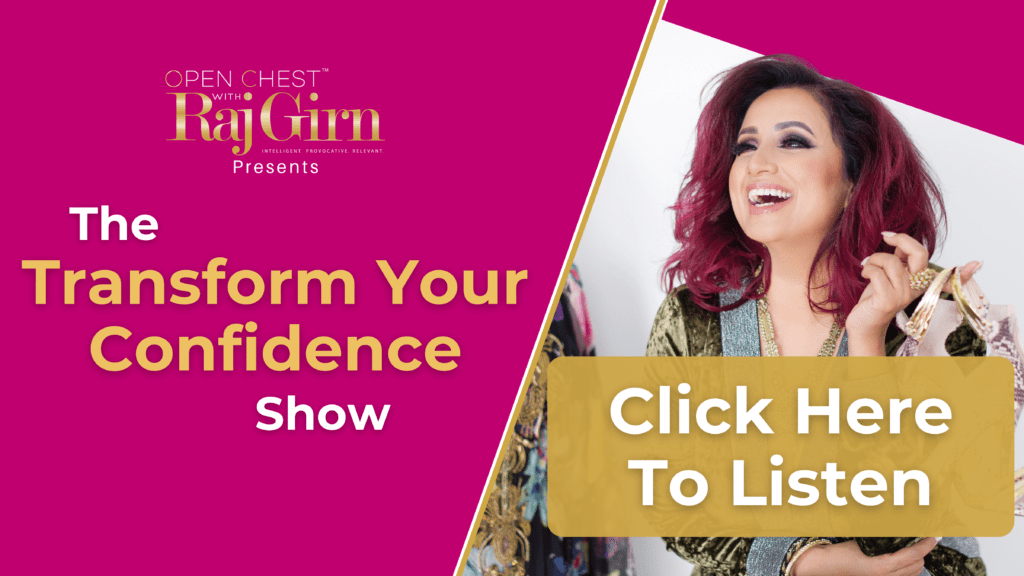
Raj Grin: Please welcome to the show, Nina, and Nina thanks for agreeing to be on the show, sweetheart. I cannot wait to deep dive this conversation with you.
Nina Purewal: Thank you so much for having me, Raj. It’s such an honour to be here. It really is.
I’m so happy. Sweetheart, let’s do this. I want to kind of start at the beginning, like the beginning of where I feel the beginning needs to start. And that is kind of after your decade in corporate where you decided to take a year out. I want to know what prompted that.
Yeah, that’s a great question. A part of it was prompted by the stress of the corporate grind. I was addicted to my BlackBerry or crackberry, they called it at the time. And part of it was an inner knowing that I am meant for something different. An opportunity came up for me to live in an ashram for a year and study ancient wisdom, continue my study of ancient wisdom and mindfulness meditation in Northern California. And it was like a calling. It was an inner knowing that I had to leave my growing career, sell the dream home I just bought, put family planning on hold and off to California I went.
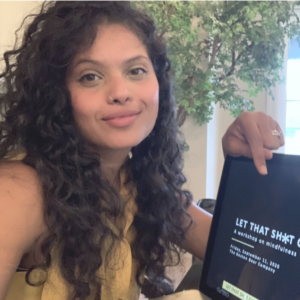
Oh my gosh, I have to ask you, what did you learn from that year about yourself?
What did I not learn from that year? I mean, I completely unplugged. After being so addicted to tech, I completely unplugged. So I had no access to Internet, to TV. I told my friends if they wanted to get a hold of me, they had to write me a letter. So I sent and received one hundred and fifty letters, no email. And it’s funny, it’s happening to a lot of people in this pandemic where because we’re a little isolated, because we’re a little physically disconnected, stuff is coming up for people. And and that is exactly what happened that year because I was so disconnected. It was like me and the Redwood forest and a lot of stuff from my past came up, a lot of pain. I lost my dad and my brother when I was 16. And so I think I went to business school and had a great career and I suppressed, suppressed, suppressed. And suddenly it all started bubbling up that. So I learned a lot about what needed to heal in that year.
Well, and that’s the big thing, right? The magic word: heal. And, you know, it’s become such a pop cultural idiom today, but a lot of us don’t really know how to navigate through that space. And I know that we’re going to kind of journey our conversation through some of that. But before we do that, I want to ask you this: How has this changed your narrative, your personal narrative on what’s important to you today?
I think it’s changed in such that realizing what is important to me. I need to start listening to my gut, to my intuition, and stop following a path that I felt was meant for me, a path that is right for society or right according to certain standards. I need to really go inwards and do what’s right for me. And my head and heart need to always be aligned because that’s what was not happening pre this big shift.
Absolutely. So let me ask you just so we can give some sort of context for people who don’t quite understand that peace or perhaps haven’t come to that part in the journey. I want to take you on a bit of an exercise, Nina, something that I take my clients on just to kind of go on to some clarity on the reality and to check in with themselves to make sure that they really are where they want to be. So the first part of this for me is if you were to list the top three reasons that kept you in corporate, what would they be?
That kept me in corporate I would say that I went to business school and it was just the path that I was on, I got into sales and marketing within the consumer packaged goods industry. Obviously, the money is good, you can’t deny that. And I actually did enjoy it. Now that I’m doing what I love, I can see the gap. But at the time I enjoyed it. I loved marketing. I got to go to Thailand, to Africa and do commercial shoots. And I loved what I did. But now I’m in love with what I do.
Wow. I love that. Folks, if you’re just joining me, I am speaking to the fabulous Nina Purewal. She has this awesome book that she co-authored that’s called ‘Let That Shit Go.’ And I cannot wait to deep dive in that. But before we do, I want to talk a little bit about her founded company, Pure Minds, which kind of came as part of her journey of unfolding to the person that she needed to become, which just kind of seemed to happen serendipitously is the feeling I’m getting, which is usually how great moments happen. But we don’t always listen to those moments that are kind of pushing us into a direction that is going to serve us on a higher level. But you did. And so I want to ask you this part of the exercise, and that is what are the top three reasons that prompted you to leave corporate?
When I was studying in California, one of the monks said to me, “As long as you’re walking a path that’s not meant for you, you’re going to feel like you’re walking with a little rock in your shoe.” And that kind of hit the nail on the head there, so that was one big reason just following my heart. The other one was I really have always wanted to spread ancient wisdom because it helped me so much in my grief and my losses, helped me wrap my head around what had happened and what I do today. And the third thing is I had another massive reality check and somewhat of a tragedy. I lost my mom. I got pregnant and lost my mom in the same year, months apart. She was diagnosed with Lou Gehrig’s or ALS, and that was another sign for me.
“As long as you’re walking a path that’s not meant for you, you’re going to feel like you’re walking with a little rock in your shoe.” ~Nina Purewal
You can go on any day, at any instant your life can change and boom. So are you really doing what you love? Are you really living life to the fullest? Are you following your heart? And that reality check is really what catapulted me to enough is enough. I really need to to follow this path and listen and go inwards to do that.
There’s just so many questions. And I guess what I want to go with this part is if there’s something that you could have learned quicker than you did, what would it be? And how do you think it could have changed things for the better for you?
I would have trusted my intuition. I knew when I came back from the ashram this is what I wanted to do. It was 2011. The corporate world wasn’t ready to talk about spirituality or mindfulness meditation, but I wish I kind of persevered. I have no regrets because my experience in corporate also enables me to do what I do now well. But I wish I trusted myself more. I wish I had more confidence. Speaking of transforming your confidence, I wish I listened to that inner voice and stepped up sooner than I did.
But here you are. Serendipity is what it is. Right? And what I found in my experience is that somehow, somewhere the universe pushes and shoves and prods me until I get to where I need to get to, because it really does conspire to your benefit. It’s just whether you’re listening to the voice. And I think that rather, you get there late, then don’t get there at all. And maybe that late really was on time. There’s so many different ways of looking at this. So when you realized that there was no going back to the corporate grind, you know that point when you knew that, how did you come up with the idea for your organization Pure Minds? Can you just share that a little bit? Because, I mean, it’s a huge shift.
Yes. And ironically, you’re talking about how the universe pushes you and supports you. And the business kind of fell in my lap in that I was on maternity leave and a girlfriend who is now my co-author, Kate, she said, “Hey, would you be willing to do some workshops downtown on mindfulness meditation?” I said, “Sure.” And I did them for fun. And I remember after the first workshop, I told my partner, “If I die tomorrow, I’m happy. This is what I want to do anyway.” Someone from corporate had attended one of the workshops. I ended up going viral and we were selling out and someone said, “Hey, can you come into my company and do this? And at that time I had no company name, no website, nothing. And I said I have a client, but I don’t have a business.
That’s a good problem.
It’s a good problem. And so from there, I literally spent the next two weeks registering a business name, developing my website on Squarespace. And the rest is history. That was in 2017.
Oh my God, 2017. What a year. It’s funny because 2017 was also the year that I started taking clients for personal branding and what have you. So it seems like a very interesting show in astrology. There’s something about that year because a number of people, a number of guests that I’ve spoken to, a number of people that I’ve spoken to that year just happened to shift their perspective on the quality of their life and the quality of their participation and how they fit into the world so well. I’d love to look into that. I think that that’s something that I’m definitely going to do. But I want to ask you this about Pure Minds. What’s the objective of the organization today?
The objective of Pure Minds really is to help people find more peace and happiness, more calm in the chaos and in the everyday. You know, it’s not like you have to go live in an ashram for a year. The book and all of my workshops are very tip based. They’re very practical. What do I do in the here and now when I’m feeling anxiety come up. And so it’s really to help people find themselves again. That’s, I’d say, the overarching objective.
And we could all do with some of that after the kind of year and a half or so that we have had. Who does the organization serve predominantly speaking?
Predominantly, at the moment, it’s corporations. And I’ve spent so much of my time in corporations. So right now it is workshops for the corporate sector. I used to do a lot for the public sector, but now with the pandemic, there’s not as much opportunity. Everyone online have gone corporate, so it’s just been an easy transition. So that’s who we’re talking to primarily.
Let’s talk a little bit about that. Let’s kind of deep dive that for everyone out there that may be curious. You have various workshops, talks and seminars that you offer to the corporates. A few questions around that for everyone.
First question is, are corporates your chosen clientele? Because I’m kind of curious about this. I’m that kind of gray area person. I always come out and try to look between the lines of corporate, your chosen clientele, because serving them somehow helps serve that version of you that you were once upon a time. Like, you know, not getting that support yourself that you needed to flourish in the corporate work environment.
Because we’re not saying that you need to leave corporate, we’re saying that when you’re in corporate, how do you evolve and excel and be able to expand who you are but still be in this kind of box that you need to work in. So I guess that’s kind of my overarching question there.
Yeah, absolutely. It wasn’t intentional, but it just felt like such a natural fit because I had gone through the fast paced environment, the reporting into the U.S., the intense business decisions and marketing plans. And it just made sense to go back into a place where I know how stress and anxiety and worry thrive and help give practical solutions on how to handle the situation. So it happened very organically. I will say what I loved about the public workshops, and I’m trying to achieve this in corporate, I’ve started doing one-on-ones with people within their companies. Think of like a guidance counselor at work. And what I loved about that was the ability to connect one-on-one in corporations. I’m speaking to 50 to 300 people. It’s very hard. Sometimes you’ve got your walls up because you’re at work. So I really do crave that. Also that one-on-one connection and impact.
So what would you say to people in the corporate arena about why your programs are going to help them?
It’s been a stressful year. I’ve worked with over 40 organizations and I mainly deal with the leadership executive level and just hearing the feedback from the last year and even talking to employees, there is a blurred line between work and home. People are trying to virtual school or home school their kids while working. I just read an article recently that in the U.K., the U.S. and Canada, people are working more than two and a half hours a day since the pandemic. And I think it’s because work is almost too accessible. There’s no shutting down physically leaving the office. It’s right there on their desk or in their bedroom, let me just check in.
And we’re isolated, especially in Canada, we’ve had so many lockdowns, so there’s nowhere to go. So you default to the work. So as a result of that, people stress. And as I said, anxiety has gone through the roof. I do surveys with my workshops and see what people have gone through mentally in the last year or so. Again, it’s just getting a breath of fresh air, feeling like you’re a little more in control of your ruminating mind and just help you take a deep breath once in a while and gather yourself. And mindfulness does impact your focus, your efficiency, your concentration. This has all been scientifically proven.
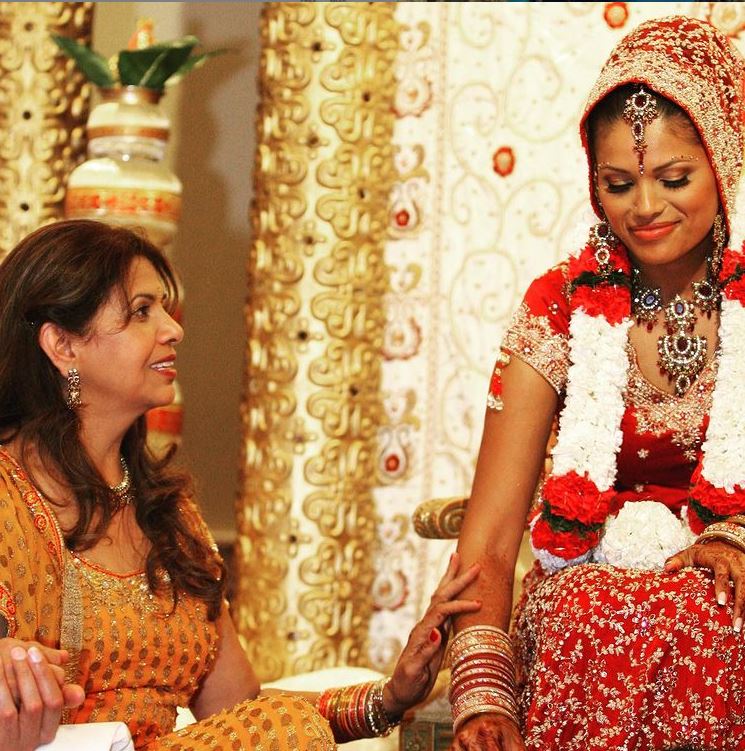
Right. Absolutely. So if there are any employers watching, listening or reading this, what would you say to them about the importance of employee wellness? Because a lot of them still think it’s woo woo.
I’m seeing the shift. When I started my company and even when I was back from the ashram in 2011, definitely woo woo. But I’ve seen a big shift this year, like executives, CEOs, general managers want to bring wellness in. And the way I see it is when I was in corporate, everything was about CSR, corporate social responsibility: What are you doing for the environment? What are you doing for the less fortunate? And I was really passionate about that. But now employees are asking, what are you doing for you? Because I’m at this breaking point, people are losing people too. A lot of unfortunately moms and women are leaving or taking leave. I had a big bank tell me they’ve never seen so many short-term and long-term leaves due to mental health as they have this last year and a half. So wellness is such a big topic right now. And companies and leaders are willing to spend to retain people and to let them know that, “Hey, we care about you. We get what’s going on. And when we see beyond the PNL. We care about you.”
“When I was in corporate, everything was about CSR, corporate social responsibility: what are you doing for the environment? What are you doing for the less fortunate? And I was really passionate about that. But now employees are asking, what are you doing for you?” ~Nina Purewal
Absolutely. Nina, it’s kind of something that I want to ask you. I’m a firm believer that the best coaches and mentors are those who have had first hand experience with a challenge and figured out a solution. With that said, can you share some details about the programing that you offer with your organization around this belief system?
Yeah. So what I offer is, in a sense, an overview of my book, which is ‘Let That Shit Go.’ And the reason why that title just speaks to me and is so important is when I was studying in the ashram, ancient wisdom says that our true nature is happiness and joy and love and bliss. And even if you think of ourselves as infants or toddlers, we were inherently happy. So what happened along the way? Along the way, we’ve built up, in tweenhood or teenhood, we’ve built up all this shit. And so I always tell people it’s not on this. You’re not on this journey to find peace. You already have it. It’s already there. You were born with that. You need to let go of everything that’s obstructing you from experiencing that.
So in the workshop, we have in an hour or two hours, three hours, we have different modules which are kind of like the different chapters in the book. And each module kind of addresses an obstacle, you know, the negative self-talk, not being able to accept what we can’t control or starting to accept what we can’t control, forgiveness perspective. And we do a bit of a deep dive on each one in the workshop. And there are some individual exercises to keep it interactive. There’s Q&A. And I really think the individual ritual exercises, because this is a subtle topic, it really help people internalize the content for what they’re getting.
Got it. So I want to dive into the book a little further, but before I do, I want people to have the opportunity to know how to get a hold of you and your organization when it comes to these workshops with your company. How can they get hold of you and learn more about the services?
Thank you for offering that. Check out my website ninapurewal.com. There is a corporate section on my website and there’s a click-through to my email or you can write me from my website and I will surely get back to you for ninapurewal.com.
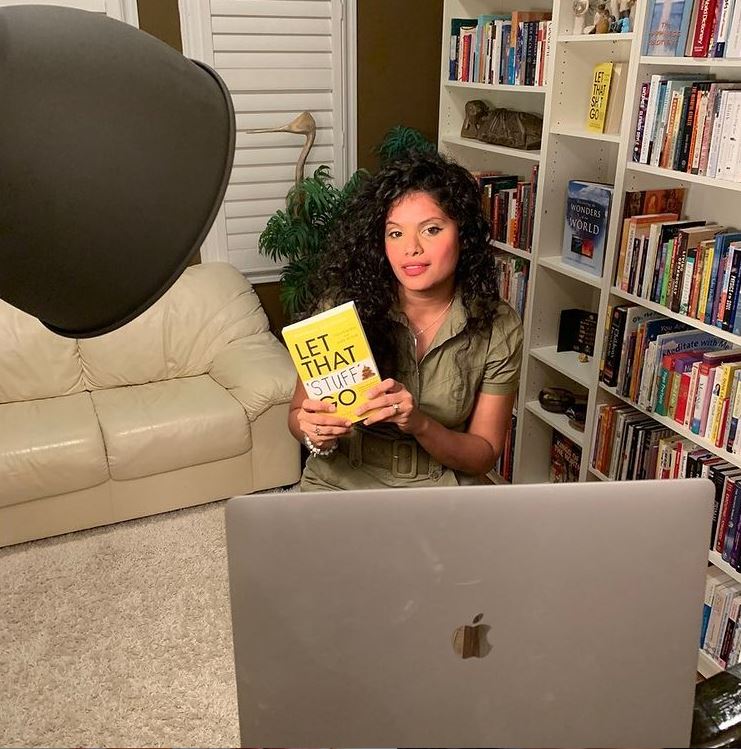
Perfect. There you have it, guys. So actually, I want to ask you one more thing before we kind of close off from the kind of corporate scenario. Pretty much everyone who has worked in corporate has experienced burnout on some level at some point in their career and amplified tenfold, obviously over the course of the last year and a half for many other reasons. But not until the circumstances of these past couple of years have we seen such an exodus of sorts.
You kind of touched upon that. So I want to ask you, people have been interested in kind of search of an alternative to the regular 9 to 5 is because they’ve experienced the work from home advantages. So a shift in corporate infrastructure is being demanded now just to kind of cater for this.
So it’s a big undertaking because the 9 to 5 grind the Monday to Friday was created about 150 years ago when the Industrial Revolution created the work infrastructure. So now, maybe imagining that is a larger journey, but what do you feel needs to change today? Maybe in smaller components to make for a more supportive environment for employees that want to operate at their best?
I love that you are asking this question. And my short answer is trust in your employees. Don’t have regulations around you have to be in the office. I’m seeing this. I’ve seen this. Companies who are saying you have to come back to the office full time, five days a week. People are leaving there because there are other opportunities where there’s the option. You’ve seen some big companies like Google and Spotify go to work from home and definitely there’s not as much competition because people can get jobs anywhere in their country, they can get jobs anywhere globally.
Now, with this new world, you have to trust your employees. You hired them for a reason. No more micromanaging. That was always my my thing as a leader, too. I don’t care if you have this appointment. You want to work from home from one day. You can’t come in. As long as you’re getting your work done and you’re doing it well, that’s all that should matter. There’s so much going on personally. Let people handle what they need to in a way that they need to and trust that the rest is getting done. Don’t try to have these big rules. And that’s where people start kind of shying away. I think we need to enable people and give them the autonomy to run their career in the way that they want to. And I think that little leeway will will make such a big difference in this new world.
“Now, with this new world you have to trust your employees. You hired them for a reason. No more micromanaging.” ~Nina Purewal
You know, I can say from firsthand experience, based on what you just said, that that’s exactly what happened to me. I remember when I first started ANOKHI back in the ANOKHI magazine days in the early 2000s to the mid 2000s, we were a quarterly print, glossy magazine. And I had this kind of, you know, and it came from my formative years of just always being pushed and prodded and told what to do and who to be. That when I started ANOKHI to kind of combat, who is this new identity of South Asian in North America that is very well-acknowledged and healed within our own internal culture but is also now starting to kind of manifest the uniqueness and the unique value proposition and the unique identity with kind of being a part of the greater society in North America.
You know, that intersection at where we sat, that there was this kind of period of confusion that was the case in the ’90s. I don’t know if you remember that at all, if it was before your time, but there would be kind of these moves that would come out and this whole kind of narrative around the confusion of sitting at the precipice or maybe at the intersection of these two cultures. So that’s kind of why I started ANOKHI. I wanted to be able to expand that dialog and not control it and put it in a box and wanted people to tell other people. And that was the reason for the platform, who they are in their many facets of what that identity actually is.
And I remember that a few years in where I was kind of really micromanaging what needed to happen and what needed to go into the publication, I realized that I wasn’t actually respecting and allowing the people that I brought on to do their tasks were far better than me, far better than I ever could be. So what I was doing inherently and if there are any C suite or any leadership type people listening to this right now, I really hope you take heed of this. When you micromanage, you are putting people into your box through your vision, yet you are bringing them in to be far greater than you. So, therefore, the expansivity of what could happen with your company is being put into the lens of your limited understanding of it.
“When you micromanage, you are putting people into your box through your vision, yet you are bringing them in to be far greater than you. So therefore, the expansivity of what could happen with your company is being put into the lens of your limited understanding of it.” ~Raj Girn
When I shifted that and I realized going back probably 2009 and I said, “Guys, I want you guys to tell me what needs to happen here. What do you feel your role needs to be? How do you feel that what you know can add to the mission of this company on this brand?” Can I tell you something, Nina? Everything changed. The energy. You know what it is. And that’s the thing. I think you’ll know that you’re going to resonate with this. The energy around the brand, the energy around the cultural infrastructure completely exploded and expanded and everybody started to emanate from a place of feeling valued and appreciated.
And they killed it. They bought their A-game. We went from this little magazine to this multifaceted media company that became a ANOKHI Media. Events would happen. And all these coffee table books and just all this brilliant, brilliant stuff started happening. I get to say that the founder of that brand, but I don’t get to say that it was built because of me. It was built because of all the people that I brought in and then finally trusted to come into their greatness.

So I really hope that any brands out there, any corporations out there, any people in a leadership position. Nina I know that you can speak to this, if you would just trust why you brought them in in the first place and let them do the magic around the parameters of the company’s vision and mission, they will be able to take it far beyond what you could ever imagine. I would love your thoughts on that, Nina. I know it was kind of a long explanation, but I feel that it was just coming to me. I needed to share that because a lot of people when they look at people like me, they think, “Oh, my God, she always does everything right.” But no, I didn’t do everything right. It’s my limited lack of confidence in myself that put everyone into my box rather than allowing them to expand in their own. What are your thoughts?
Yeah, the fact that you can recognize that about yourself, admit that and then make the shift is just indicative of what an incredible leader you are. I mean, what it must have been to be on your team in 2009 when that shift happened. And that’s the thing. We come from a place of fear and we want to control what’s happening. And this is why we start to micromanage. But people want to be empowered. People want autonomy. People want to know that you believe in them. And that’s why you hired them in the first place. And I love how you touched on having people on your team.
“We come from a place of fear and we want to control what’s happening. And this is why we start to micromanage. But people want to be empowered. People want autonomy. People want to know that you believe in them. And that’s why you hired them in the first place.” ~Nina Purewal
Last time. The last role I had in corporate was a GM for a global environmental company, GM for Canada. And I would always try to hire people smarter than me. So if you’re doing that, then let them expand, let them teach you. And you’re absolutely right. That is when the company, the brand is going to reach its full capacity and beyond what you can kind of even imagine that you were controlling and not micromanaging box. So I absolutely love this. And I think it’s such an important point, especially in this time when everybody is extra sensitive and it’s been an intense year. It’s just trust your employees. You hired them for a reason. You got to let them go and do their thing.
Absolutely. Let that shit go, folks.



